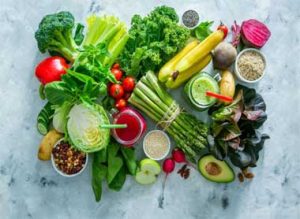
March marks a special time of the year when our focus turns to the foundation of our well-being – our nutritional health. As we celebrate National Nutrition Month, we embark on a journey that highlights the significance of making informed food choices and embracing a lifestyle centered around good nutrition. Throughout this month-long observance, we come together to raise awareness, educate, and inspire individuals to prioritize their dietary habits, fostering a society that thrives on optimal nutrition.
National Nutrition Month:
National Nutrition Month is an annual event celebrated in March, dedicated to shining a spotlight on the pivotal role of nutrition in promoting overall health and wellness. This initiative is spearheaded by health professionals, dietation experts, nutritionists, educators, and organizations across the country, who collaborate to encourage positive dietary behaviors and address prevalent nutritional challenges.
During this month, various activities, campaigns, and workshops are organized to disseminate essential information about nutrition, debunk myths, and provide practical tools to help individuals make sustainable dietary changes. From schools and workplaces to communities and healthcare facilities, the nation collectively embraces the mission of fostering healthier lifestyles through conscious eating habits.
National Nutrition Month History:
March is a month of celebration and awareness in the United States, as it marks the annual observance of National Nutrition Month. Sponsored by the Academy of Nutrition and Dietetics, this month-long event has a rich history of promoting healthy eating habits and fostering a culture of well-being. Since its inception, National Nutrition Month has played a pivotal role in empowering individuals to make informed food choices and embrace a lifestyle that prioritizes good nutrition and regular physical activity.

Early Beginnings and Evolution:
The roots of National Nutrition Month can be traced back to the 1970s when the American Dietetic Association, now known as the Academy of Nutrition and Dietetics, initiated a week-long campaign dedicated to nutrition education. The inaugural “National Nutrition Week” took place in March 1973, with a primary focus on raising awareness about the importance of good nutrition and the role of registered dietitians in promoting healthy eating habits.
Over the years, the campaign’s success and increasing demand for nutrition-related resources led to its expansion. In 1980, “National Nutrition Week” transformed into “National Nutrition Month,” providing an entire month’s worth of activities, events, and educational materials centered around nutrition and dietetics. This extension allowed for more in-depth and comprehensive engagement with the public, schools, workplaces, and healthcare facilities, further promoting the significance of proper nutrition.
The Impact of National Nutrition Month:
Since its evolution into a month-long celebration, National Nutrition Month has had a profound impact on the health and wellness landscape of the United States. The campaign’s emphasis on making informed food choices and cultivating healthy eating and exercise habits has resonated with individuals from all walks of life. Year after year, communities across the nation come together to participate in various nutrition-related events, workshops, and seminars, all aimed at empowering individuals to lead healthier lives.
The campaign’s core message centers around the principles of balance, variety, and moderation in food choices. By encouraging the consumption of nutrient-dense foods such as fruits, vegetables, whole grains, lean proteins, and healthy fats, National Nutrition Month helps combat the rising tide of diet-related chronic diseases.
Collaboration and Outreach:
One of the most remarkable aspects of National Nutrition Month is the collaborative efforts of diverse stakeholders in the realm of nutrition and healthcare. Registered dietitians, nutritionists, educators, health organizations, and government agencies all work hand in hand to create a united front for spreading the message of good nutrition. This collaboration ensures that the campaign’s impact reaches far and wide, penetrating educational institutions, workplaces, community centers, and even online platforms.
Through an extensive network of professionals and volunteers, National Nutrition Month provides evidence-based information, resources, and practical tips to help individuals incorporate healthier eating habits into their daily routines. The campaign’s accessibility has empowered countless individuals to make meaningful changes that contribute to improved health and well-being.
Importance of Promoting Good Nutrition During Nutrition Month:

The promotion of good nutrition lies at the heart of building a resilient and thriving population. Our dietary choices have far-reaching impacts on our physical, mental, and emotional well-being. By prioritizing nutrient-dense foods and maintaining a balanced diet, we ensure that our bodies receive the vital nutrients they need to function optimally.
National Nutrition Month serves as a powerful platform to emphasize the significance of consuming a variety of fruits, vegetables, whole grains, lean proteins, and healthy fats. These nutrient-rich choices not only support growth and development in children and adolescents but also bolster the health and vitality of adults.
Moreover, good nutrition plays a crucial role in disease prevention and management. By adopting healthier eating habits, individuals can reduce the risk of chronic illnesses such as obesity, diabetes, and heart disease. A well-nourished body is better equipped to combat infections and other health challenges, enhancing overall resilience.
Beyond the physical benefits, nutrition also impacts cognitive function and mental well-being. Proper nutrition supports brain health, concentration, and memory, contributing to improved academic and professional performance.
During National Nutrition Month, we are called to reflect on our current eating habits and consider small, positive changes that can lead to significant long-term health benefits. By embracing wholesome foods and adopting mindful eating practices, we not only invest in our individual health but also contribute to a healthier and happier society.
How to Celebrate National Nutrition Month:

Celebrating National Nutrition Month offers a wonderful opportunity to prioritize your health and well-being by adopting positive dietary habits and promoting a balanced lifestyle. Here are some inspiring ways to celebrate and make the most of this special month:
- Educate Yourself: Take the time to educate yourself about the principles of good nutrition. Read up on the latest dietary guidelines, nutrition tips, and research from reputable sources like the Academy of Nutrition and Dietetics, the World Health Organization, and other health organizations.
- Set Goals: Reflect on your current eating habits and identify areas for improvement. Set realistic and achievable nutrition goals for yourself, such as incorporating more fruits and vegetables into your meals, reducing added sugars, or drinking more water throughout the day.
- Try New Recipes: Embrace National Nutrition Month by trying out healthy and delicious recipes. Experiment with new ingredients, flavors, and cooking techniques that align with your nutritional goals.
- Meal Planning: Plan your meals ahead of time to ensure you’re making balanced and nutritious choices. Meal planning can also save time and reduce the temptation of unhealthy fast food options.
- Involve Family and Friends: Celebrate with your loved ones by involving them in your nutrition journey. Organize a healthy potluck or cooking session with friends and family, where everyone can contribute their favorite nutritious dishes.
- Learn to Read Labels: Take the time to understand food labels and nutritional information. Being able to decipher labels helps you make informed choices when grocery shopping.
- Stay Hydrated: Hydration is crucial for overall health. Challenge yourself to drink an adequate amount of water each day. Consider flavoring water with slices of fruits or herbs for added taste.
- Physical Activity: Remember that good nutrition is not just about what you eat; it’s also about staying active. Incorporate regular physical activity into your daily routine to complement your efforts in maintaining a healthy lifestyle.
- Support Local Farmers: Celebrate National Nutrition Month by supporting local farmers and purchasing fresh produce from farmers’ markets. It’s not only a great way to access fresh, seasonal foods, but also helps sustain local communities.
- Participate in Workshops and Webinars: Check out the various nutrition-related workshops, webinars, and events happening during National Nutrition Month. Attend these sessions to gain insights from experts and stay motivated in your journey towards better nutrition.
- Spread Awareness: Share your nutrition journey on social media or with friends and family. Encourage others to participate in National Nutrition Month and embrace healthier habits.
- Volunteer and Give Back: Consider volunteering with organizations that focus on nutrition and food security. Contributing to initiatives that provide access to nutritious food for those in need can make a meaningful impact.
Remember, National Nutrition Month is not just about a single month of celebration; it’s an opportunity to initiate lasting changes that benefit your health and well-being throughout the year. By embracing a balanced and mindful approach to nutrition, you set yourself on a path to a healthier and more vibrant life.
National Nutrition Month Challenge: Month Without Sugar

Welcome to the National Nutrition Month Challenge! This year: 2024, we invite you to embark on a transformative journey by participating in “A Month Without Sugar.” For the entire month, we challenge you to eliminate added sugars from your diet to experience the profound impact it can have on your health and well-being. Are you ready to take on this sweet challenge?
Why A Month Without Sugar?
Added sugars, commonly found in sugary beverages, processed foods, and sweets, contribute to various health issues, including obesity, type 2 diabetes, and cardiovascular diseases. By reducing or eliminating added sugars from your diet, you can improve your energy levels, enhance your immune system, and support better overall health.
Getting Started The Challenge:
- Read Labels: Familiarize yourself with different names for added sugars (e.g., sucrose, high-fructose corn syrup, dextrose) and check food labels before purchasing products. Be vigilant, as sugars often hide in unexpected places.
- Stock Up on Natural Sweeteners: To satisfy your sweet cravings, use natural sweeteners like honey, maple syrup, or stevia in moderation. These alternatives provide sweetness without the negative effects of refined sugars.
- Plan Your Meals: Meal planning is crucial for staying on track. Prepare wholesome meals and snacks in advance to avoid reaching for sugary options when hunger strikes.
- Choose Whole Foods: Opt for whole, unprocessed foods like fruits, vegetables, whole grains, lean proteins, and nuts. These foods offer essential nutrients without added sugars.
The Benefits of A Month Without Sugar:
- Improved Energy Levels: Refined sugars cause blood sugar spikes and crashes, leading to energy fluctuations. By eliminating added sugars, you’ll experience more stable energy levels throughout the day.
- Weight Management: Reducing sugar intake can contribute to weight loss or maintenance, as sugary foods are often high in empty calories and can lead to overeating.
- Enhanced Mental Clarity: Sugar consumption has been linked to brain fog and decreased cognitive function. Without added sugars, you may experience improved mental clarity and focus.
- Better Skin Health: High sugar intake has been associated with skin issues like acne and premature aging. A month without sugar may lead to healthier, clearer skin.
- Balanced Mood: Sugary foods can lead to mood swings and irritability. With a sugar-free diet, you may find your mood more stable and positive.
Overcoming Challenges:
- Cravings: Sugar cravings may arise, especially during the first few days. Combat them by keeping healthy snacks on hand and staying hydrated.
- Social Gatherings: Parties and events may tempt you with sugary treats. Prepare yourself mentally and bring sugar-free alternatives to stay on track.
- Gradual Reduction: If eliminating all added sugars feels overwhelming, start by gradually reducing your intake and slowly work towards a sugar-free month.
Celebrating Success:
At the end of the month, celebrate your achievements! Take note of the positive changes you’ve experienced, both physically and mentally. Reflect on the lessons learned, and consider incorporating healthier sugar habits into your long-term lifestyle.
Remember, this challenge is not about deprivation; it’s about empowering yourself to make healthier choices and embracing a balanced approach to nutrition. Join us for “A Month Without Sugar” during National Nutrition Month 2024 and witness the transformative impact of this sweet endeavor on your health and well-being. You’ve got this!
Conclusion:
As we celebrate National Nutrition Month every March, we honor the rich history and powerful impact of this annual event. From its humble beginnings as a week-long campaign to its evolution into a month-long celebration, National Nutrition Month has been instrumental in promoting healthy eating habits and fostering a culture of wellness across the United States. With a collaborative and inclusive approach, the campaign continues to inspire individuals to make better food choices and develop sustainable habits that lead to a healthier, happier nation. Let us join hands and embrace the spirit of National Nutrition Month, embarking on a journey of well-being and vitality for generations to come.




